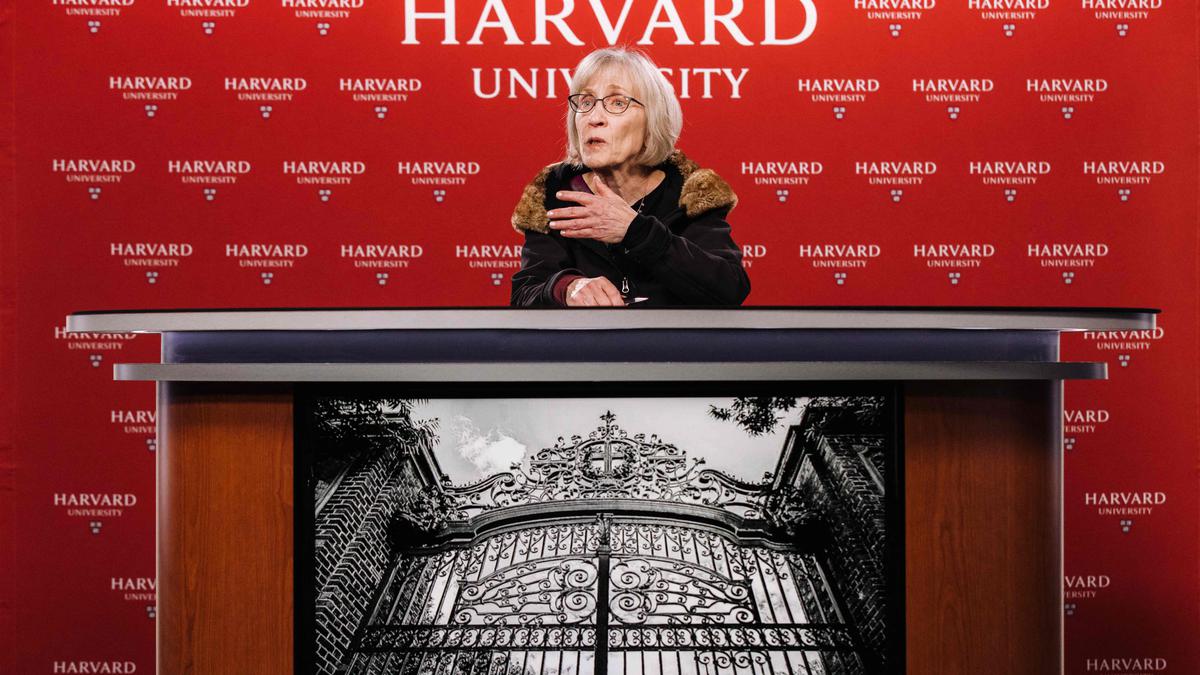
Women can make the world better Premium
The Hindu
Women must be given freedom, not just to be promoted within male-dominated institutions, to shape better, family-spirited institutions for governance
Economic history has long been chronicled through a male lens, emphasising the contributions of men and their viewpoints. Just look at the Nobel Memorial Prize in Economic Sciences. It has been awarded to 90 men since 1969 — and just three women. The first, Elinor Ostrom, won in 2009 for explaining how local communities, most of them in developing countries, govern themselves. The second, Esther Duflo, won in 2019, for her experimental work in alleviating global poverty. Claudia Goldin was the third woman awarded the Nobel Prize in Economics in 2023 for her work explaining why women earn less money than men even when they do the same work.
Economics science is focused on studying systems for producing economically valuable goods and services efficiently. Natural and human resources are measured by economists in money terms. Claudia Goldin was awarded for her work explaining why women earn less money than men even when they do the same work. A woman’s work in the family contributes to the well-being of humans in society: it does not add to the growth of the economy and GDP. Ms. Goldin’s research reveals that women, who also attend to the caring work required for families at home, are considered less valuable in economic enterprises because they cannot commit to continuously working full time for their employers, which men can.
Patterns of economic growth have shifted globally. Long-term employment in industrial forms of establishments is becoming harder to find even in rich countries. More employment is being generated now in the gig economy and the informal sector. Even in large industrial establishments, jobs are on short-term contracts. These trends in the future of work are a special challenge for India, which has the largest numbers of youth in the world. They are finding fewer opportunities for dignified work with adequate income and social security even though the Indian economy is among the fastest growing in the world.
Moreover, India, which ranks 132 out of 191 countries in human development, needs to invest more in care-giving services. Sadly, care-giving work is not valued in the money economy. The millions of women providing domestic services, and millions more who are providing care in communities as ASHA workers (Accredited Social Health Activist) and anganwadi workers in primary health and education, are very poorly paid.
The Indian Prime Minister has called upon the G-20 to support human-centric development going beyond GDP. The vision of globalisation so far has been “One Earth, One Economy, One Future”. India has called for a different vision at the G-20: Vasudhaiva Kutumbakam: “One Family, One Earth, One Future”. GDP is a monetary measure of only the economic component of a society. GDP does not value care-giving work. Therefore, to pursue its ambitions to become a “$10 trillion-dollar GDP” economy, policymakers, even in India, want to pluck women out of their families and from informal work, and push them into more efficient, industrial-form establishments to contribute to GDP.
The 17 Sustainable Development Goals (SDG), to be achieved by 2030, cover a range of environmental, social, and economic problems that must be solved simultaneously to make progress more inclusive and sustainable. The G-20 has assessed that, at the midway point to 2030, the global progress on SDGs is off-track with only 12% of targets on track. Clearly, we must change our approach for achieving the SDGs.
Many wise men have advised that we cannot solve complex systemic problems with the same ways of thinking that have caused them. The prevalent paradigm of public policy is for domain experts to determine best solutions in their respective areas, and for government organisations and non-governmental organisations to deliver them on scale. However, educational solutions that work in Kerala will not suit Bihar; water management systems that suit Rajasthan will not fit Uttarakhand. Moreover, environment, livelihood, health, and infrastructure solutions must mesh with each other in their local contexts. Therefore, complex problems must be solved bottom up, not top down. Local systems solutions cooperatively developed by communities are the only way the goals of the SDGs can be achieved.

After Leader of the Opposition in the Assembly R. Ashok’s prediction on Saturday that Chief Minister Siddaramaiah will step down in November 2025 triggered intense political discussions in the State, Home Minister G. Parameshwara on Sunday said Mr. Siddaramaiah will continue for the full five-year term.

 Run 3 Space | Play Space Running Game
Run 3 Space | Play Space Running Game
 Traffic Jam 3D | Online Racing Game
Traffic Jam 3D | Online Racing Game
 Duck Hunt | Play Old Classic Game
Duck Hunt | Play Old Classic Game
















